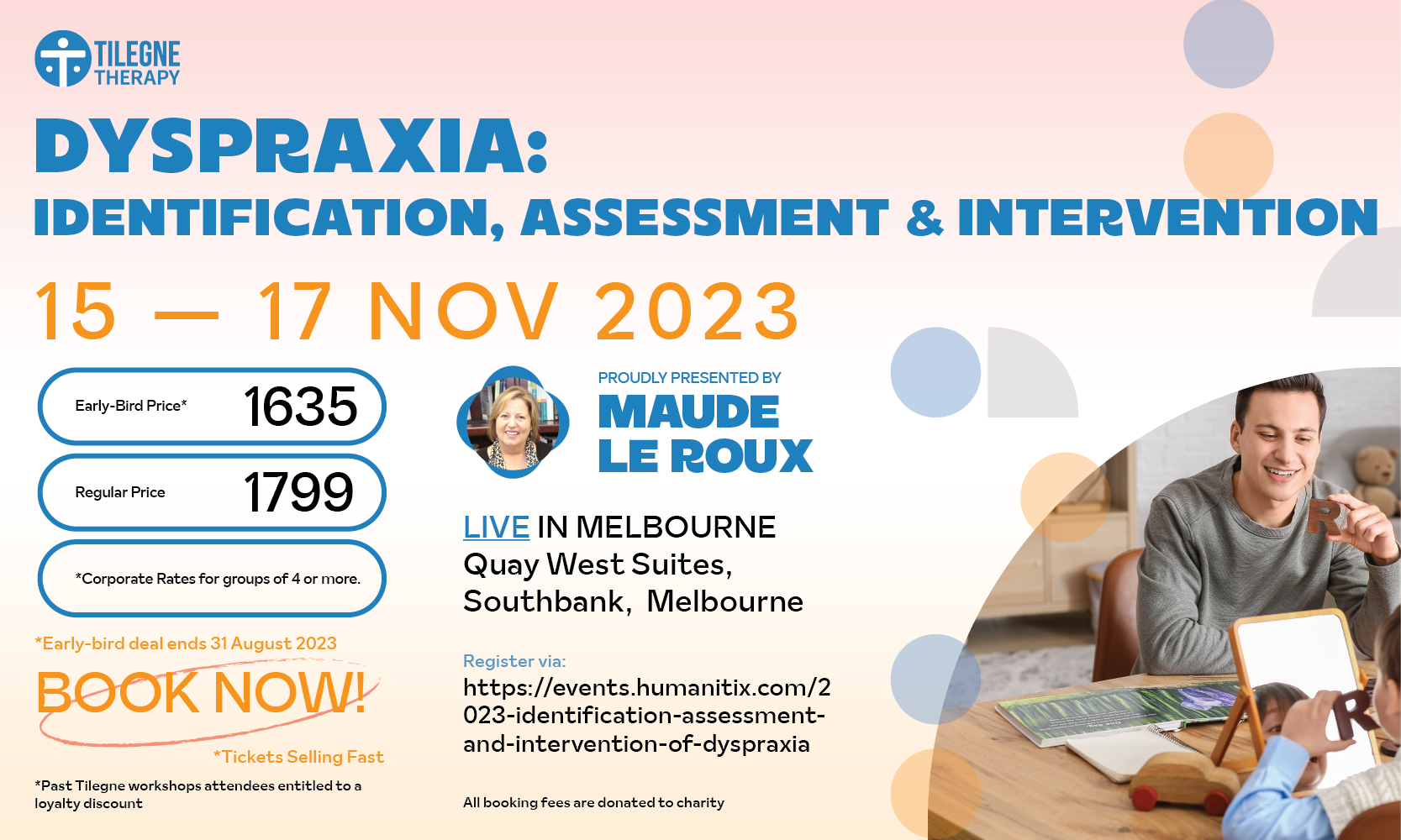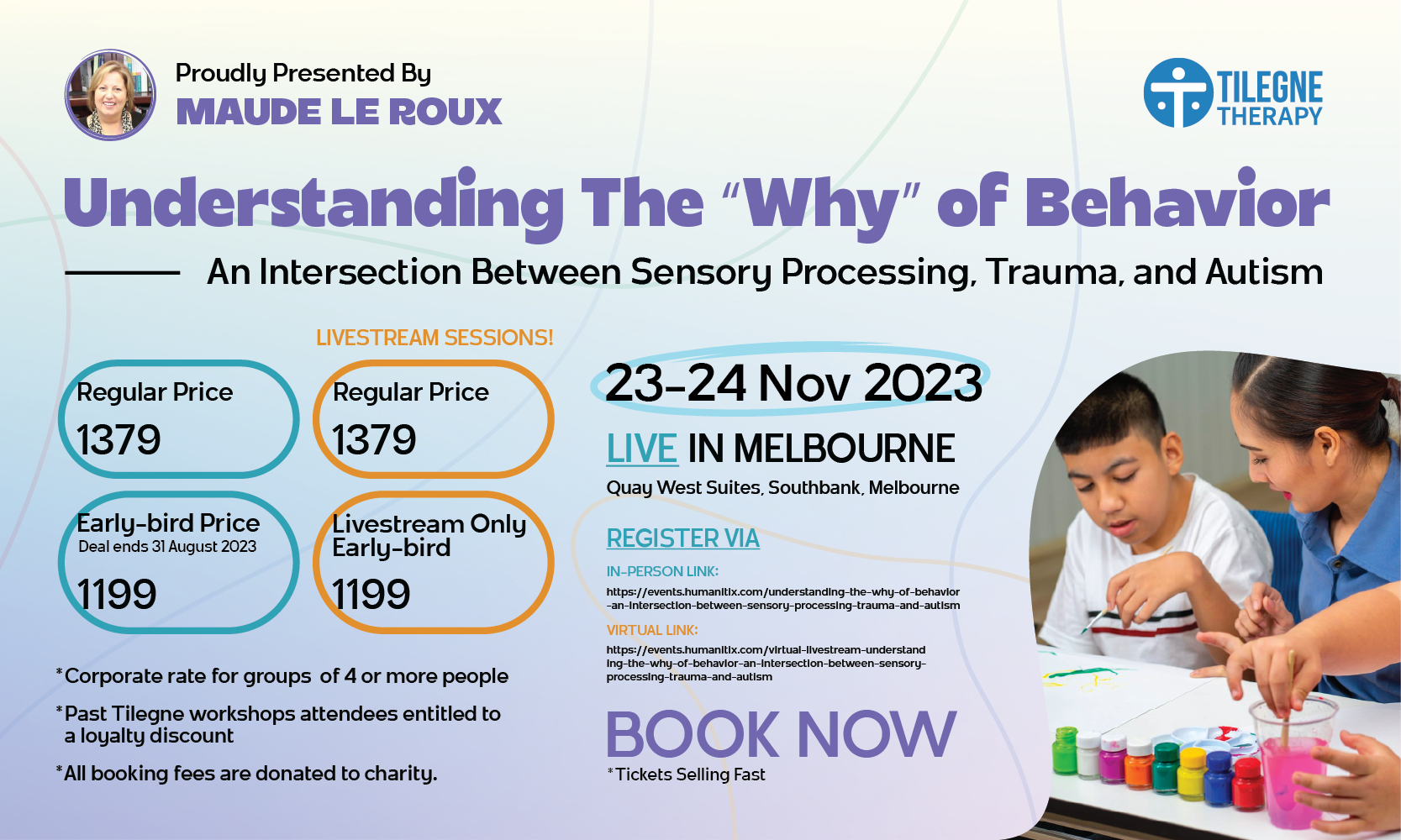Identification,assessment & intervention

An intersection between sensory processing, trauma and autism


Tilegne Therapy acknowledges and pays respects to the past, present and future Traditional Custodians of the land on which we work, learn and live. Tilegne Therapy is deeply grateful to Elders, past and present, for their care and protection of these lands over millennia.
We’re here to help!
Our mobile therapists are able to visit your home.
Tilegne Therapy
Copyright © 2023. All rights reserved.
